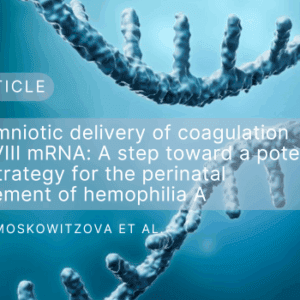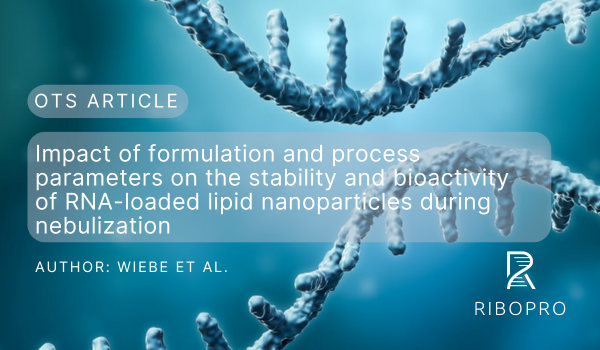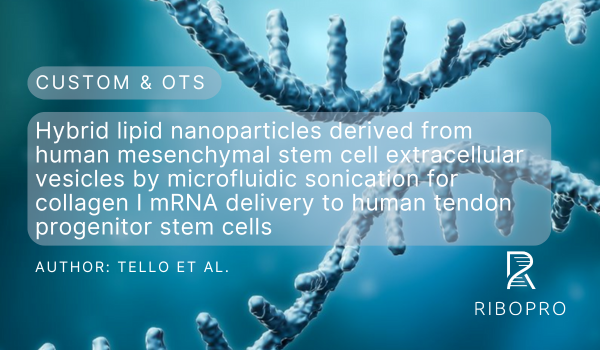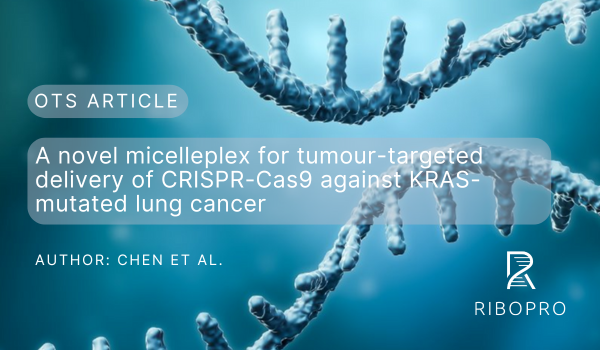Authors
Kamila Moskowitzova, Emily M. Scire, Tanya T. Dang, Beatriz S. Bechara, Yash V. Shroff, Eva Zacharakis, Isabela D. Fitzgerald, Aaliyah S. Couto, David Zurakowski, Dario O. Fauza
Keywords
Fetal mRNA therapy, hemophilia A, mRNAfactor VIII, TRANAT, transamniotic fetal therapy, transamniotic mRNA therapy, transamniotic nucleic acid therapy, OTS mRNA
DOI
https://doi.org/10.1021/acsanm.4c02996
Journal: FASEB
PMID: 40909874
PMCID: PMC12406074
Abstract
Hemophilia A is an X‐linked monogenic disease resulting in insufficient pro‐coagulant factor VIII (FVIII) levels. Hemophiliac infants are at risk for life‐threatening hemorrhage, especially during birth. No perinatal treatment for Hemophilia A is currently available. It has been previously shown that the transamniotic route is a viable option to deliver exogenous mRNA to the fetus. We sought to determine whether FVIII mRNA so delivered could be translated by the fetus, leading to the presence of FVIII in the fetal circulation. Time‐dated pregnant Sprague Dawley dams underwent volume‐matched intra‐amniotic injections in all their fetuses (n = 166) of either a human FVIII (hFVIII) mRNA encapsulated by lipopolyplex (mRNA; n = 115) or of the same lipopolyplex without mRNA (control; n = 51) on gestational day 17 (E17; term = E21–22). Fetal liver and serum samples were procured daily until term and screened for hFVIII protein by ELISA. There was no maternal mortality. Overall survival was 90% (149/166). Controlled by the mRNA‐free injections, fetal serum levels of hFVIII were statistically significantly higher overall in the mRNA group (p = 0.002), peaking at E20 (24.4 ± 2.4 ng/mL in the mRNA group vs. 10.5 ± 1.9 ng/mL for control; p < 0.001). In the fetal liver, there was variability in statistically significant differences between the groups, with the shorter time point showing significance (p = 0.003). Encapsulated exogenous mRNA encoding for factor VIII can be incorporated and translated by the fetus following simple intra‐amniotic injection in a rat model. Transamniotic mRNA delivery could become a novel strategy for the perinatal management of Hemophilia A.



